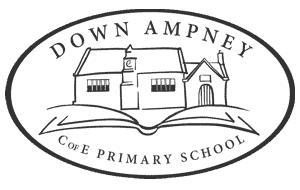
The curriculum is designed to interest pupils and create a love of learning. It promotes pupils’ spiritual, moral, social and cultural development well.
Ofsted
Curriculum Intent
Our curriculum is ambitious, broad and well-balanced. We follow the National Curriculum from Years 1 to 6, and EYFS Framework through Development Matters in EYFS. We plan the curriculum carefully, with a clear learning sequence, to ensure new knowledge and skills are built upon.
Our mastery approach ensures that all pupils have mastered key concepts before moving onto new topics and provides opportunities for children to apply their skills across the curriculum. We provide a range of opportunities to ensure pupils have the cultural capital required to be successful citizens.
We start every unit by “Making Connections”; drawing on past learning to enable children to apply prior knowledge and skills into new situations. This enables children to take ownership of what they already know and what they want to find out. Using a support and extend strategy, children are then scaffolded through their learning to ensure progression.
We ensure that all children have access to a broad and balanced curriculum, identifying quality first teaching as the biggest key to success. The Pupil Premium Grant (PPG) is allocated wisely to enable us to ensure pupils entitled to PPG funding make progress in line with their peers.
Our curriculum is carefully adapted and provides excellent skills-based challenge therefore addressing the needs of our children with SEND as well as those who are more able.
We ensure British and School Values are explicitly taught.
Curriculum Implementation
High quality CPD is used to ensure leaders have strong subject knowledge and are able to evaluate the impact of the curriculum in their subject area.
Medium Term Overviews are devised carefully to ensure there is a clear sequence of learning. These explicitly address the substantive, disciplinary and procedural knowledge and skills for a unit as well as ensuring opportunities to ensure diversity of people and places studied and wider opportunities are carefully planned.
Pupil talk is a strength of all lessons and enables teachers to help children develop vocabulary and language. Careful use of questioning enables teachers to check pupils’ understanding and also challenge them.
Our learning environment promotes children’s independence and self-help skills, by using vocabulary lists, worked examples and visual aids. We enrich the curriculum by inviting visitors into the school and also by arranging external visits and loans boxes. Practical activities are used to inspire learning across all subjects.
Opportunities to develop reading skills are utilised widely and a love of reading is actively promoted through daily story times, guided and independent reading and access to a well-equipped school library.
Assessment is used to inform planning and takes a variety of forms, for example; in Science, a focussed skills-based practical assesses Working Scientifically skills, whereas, a termly Star Reading online quiz matches children to their correct reading level and half termly arithmetic tests identify gaps in knowledge.
Curriculum Impact
Pupils enjoy their learning and are enthused by the knowledge they gain. They often choose to complete further work at home, linked to their topic in class. They are motivated by things that happen at school that link to their learning e.g. a visit from local geologists who unearthed mammoth remains in our local area.
The attainment of those children who start their journey with us in Reception exceeds national standards in reading, writing and maths, both as individual subjects, and combined. Those children who started their school life elsewhere, make rapid progress during their time at our school.
Most children make rapid progress, including SEN, Pupil Premium and non-standard entry children.
Pupils and parents with SEND report that they are well supported, and the school has a strong working relationship with other professional agencies such as the Advisory Teaching Service and local Educational Psychologist.
Feedback from our local secondary school confirms that the children join them very well prepared for the next steps in their learning journey.

